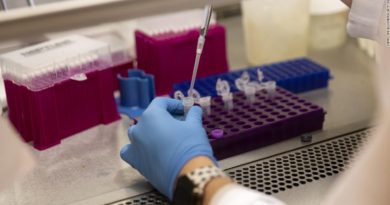Covid-19 Live Updates and Tracker
Most of the redirected money will go to children’s immunization and influenza surveillance, officials said. But the United States Agency for International Development will continue with plans to give $68 million to the W.H.O. to support its work in Libya and Syria, and on polio eradication in Pakistan and Afghanistan.
The W.H.O. declined to comment, other than to refer reporters to statements made when the administration announced its intent to withdraw. At the time, Tedros Adhanom Ghebreyesus, the director-general of the W.H.O., said the agency “regretted” Mr. Trump’s decision. “The United States of America has been a longstanding and generous friend to the W.H.O., and we hope it will continue to be so,” Dr. Tedros said.
On July 7, the Trump administration formally notified António Guterres, secretary-general of the United Nations, that the United States would withdraw from the W.H.O. on July 6, 2021.
U.N. members are obliged to give a year’s notice of withdrawal and to pay all dues owed. The United States, which has historically been the agency’s largest supporter, was assessed 22 percent of the agency’s budget, or about $120 million; it had already paid $58 million, officials said, when the notice of withdrawal was delivered.
In 2019, the United States contributed about $553 million. That amount, far larger than the obligatory dues assessment, included voluntary donations to causes that the American government supports.
Secretary of State Mike Pompeo accused the W.H.O. on Wednesday of being ineffective and politically influenced as he defended the Trump administration’s rejection of a coordinated global initiative to distribute a coronavirus vaccine.
At least 172 countries are negotiating to join the so-called Covax program, the only worldwide effort among governments and manufacturers to approve and distribute a vaccine. So far, nine potential vaccines have been evaluated, and nine more are still being tested, according to the W.H.O.




